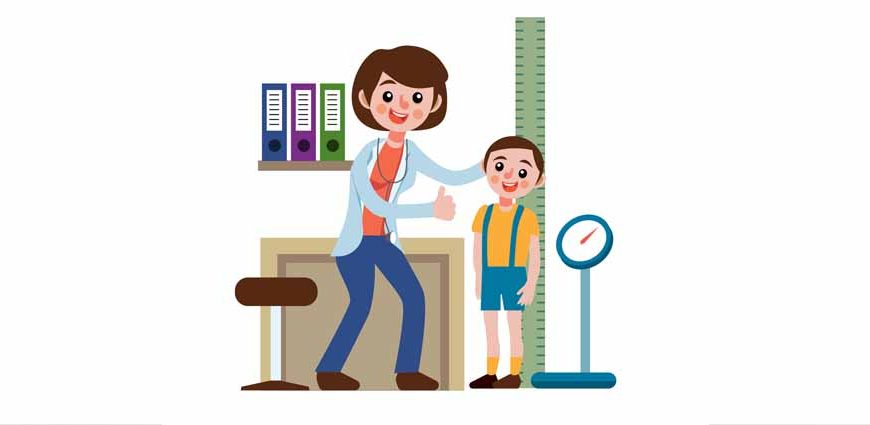Growth hormone deficiency (GHD) is a medical condition that affects children and can result in stunted growth and other developmental issues. It occurs when the body does not produce enough growth hormone, which is essential for proper growth and development. This article will discuss the causes of growth hormone deficiency, the symptoms to look out for, and the various treatment options available.
Causes of Growth Hormone Deficiency
- Genetic Factors:
- Damage to the Pituitary Gland or Hypothalamus:
- Idiopathic Growth Hormone Deficiency:
- Congenital Factors:
- Autoimmune Diseases:
– Mutations in the genes responsible for growth hormone production – Inherited genetic syndromes, such as Turner syndrome and Prader-Willi syndrome
– Traumatic brain injury – Tumours – Infections – Radiation therapy
– No known cause
– Birth defects affecting the pituitary gland or hypothalamus – Premature birth or low birth weight
– Lymphocytic hypophysitis – Hashimoto’s thyroiditis
Understanding what causes growth hormone deficiency is crucial in addressing the issue and providing appropriate treatment for children suffering from this condition.
Symptoms of Growth Hormone Deficiency
- Physical Symptoms:
- Emotional and Cognitive Symptoms:
- Growth-Related Symptoms:
- Metabolic Symptoms:
– Slower growth rate than peers – Short stature – Increased body fat, especially around the waist – Delayed puberty – Poor muscle development – Thin or sparse hair – Chubby cheeks
– Learning difficulties – Social isolation – Low self-esteem – Anxiety and depression – Emotional immaturity
– Delayed bone age – Disproportionate limb length (shorter limbs relative to trunk) – Poor dental development
– Low blood sugar levels (hypoglycaemia) – High cholesterol levels – Reduced bone density
Knowing the growth hormone deficiency symptoms can help parents and healthcare providers identify the condition early and initiate prompt treatment.
III. Diagnosis of Growth Hormone Deficiency
- Medical History and Physical Examination:
- Blood Tests:
- Imaging Studies:
- Stimulation Tests:
- Genetic Testing:
- Referral to a Specialist:
– Detailed medical history – Assessment of growth patterns and development
– Measurement of growth hormone levels – Insulin-like growth factor 1 (IGF-1) levels – Other hormone levels
– Magnetic resonance imaging (MRI) of the brain – X-rays of the hand to assess bone age
– Arginine test – Clonidine test – Insulin tolerance test
– Screening for mutations in genes associated with growth hormone deficiency – Identification of inherited genetic syndromes
– Endocrinologist consultation for a comprehensive assessment and diagnosis
Understanding how growth hormone deficiency is diagnosed is vital for early detection and proper management of the condition.
Treatment Options for Growth Hormone Deficiency
- Growth Hormone Therapy:
- Supportive Therapies:
- Treatment of Underlying Conditions:
- Monitoring and Adjusting Treatment:
- Additional Treatments for Pubertal Development:
- Multidisciplinary Approach:
– Synthetic growth hormone injections – Daily or weekly injections – Monitoring of growth and hormone levels
– Nutritional counselling – Psychological support – Educational support
– Surgery or radiation therapy for tumours – Hormone replacement therapy for other hormonal imbalances
– Regular follow-up appointments with the endocrinologist – Adjustments to growth hormone dosage based on growth response and side effects – Monitoring for long-term complications of treatment
– Sex hormone replacement therapy, such as testosterone or oestrogen, to induce puberty in patients with delayed or absent puberty
– Involvement of various healthcare professionals, including nutritionists, psychologists, and physiotherapists, to address the different aspects of growth hormone deficiency
Understanding the different treatment options for growth hormone deficiency is essential to provide the best possible care for affected children.
The Importance of Early Detection and Treatment
- Improved Growth and Development:
– Catch-up growth – Normalisation of body proportions – Improved muscle and bone development
– Better academic performance – Improved social skills – Increased self-esteem
– Reduced risk of obesity and related health complications – Improved bone health and reduced risk of osteoporosis – Optimised overall quality of life
– Reduced risk of developing cardiovascular diseases – Prevention of metabolic syndrome and type 2 diabetes
– Increased ability to participate in sports and other activities with peers – Improved overall quality of life and well-being
Early detection and intervention are crucial in managing growth hormone deficiency in children, ensuring they can lead fulfilling, healthy lives.
Challenges and Future Directions in Growth Hormone Deficiency Research
- Development of Novel Diagnostic Tools:
- Advancements in Treatment Options:
- Understanding Long-term Outcomes:
- Personalised Medicine Approach:
– Identification of new biomarkers for growth hormone deficiency – Improved stimulation tests with fewer side effects and higher accuracy
– Development of long-acting growth hormone formulations to reduce the frequency of injections – Exploration of alternative delivery methods, such as oral or nasal administration
– Longitudinal studies to assess the long-term effects of growth hormone therapy on physical, cognitive, and emotional well-being – Identification of factors influencing treatment response and long-term outcomes
– Integration of genetic, environmental, and clinical data to develop tailored treatment plans for individual patients with growth hormone deficiency
Growth hormone deficiency in children is a serious condition that can have a significant impact on physical, emotional development, and cognitive development. Early detection and treatment are crucial to ensuring that affected children can achieve their full growth potential and enjoy a healthy, happy life.
As our understanding of growth hormone deficiency in children continues to expand, so too will our ability to diagnose, treat, and support those affected by this condition. By staying informed and working together with healthcare professionals, parents can help their children overcome the challenges of growth hormone deficiency and lead healthy, fulfilling lives.
At EuroKids, we understand the importance of monitoring the growth and development of our students. Our dedicated team of professionals is committed to providing a nurturing and supportive environment, where children can thrive and reach their full potential.
















